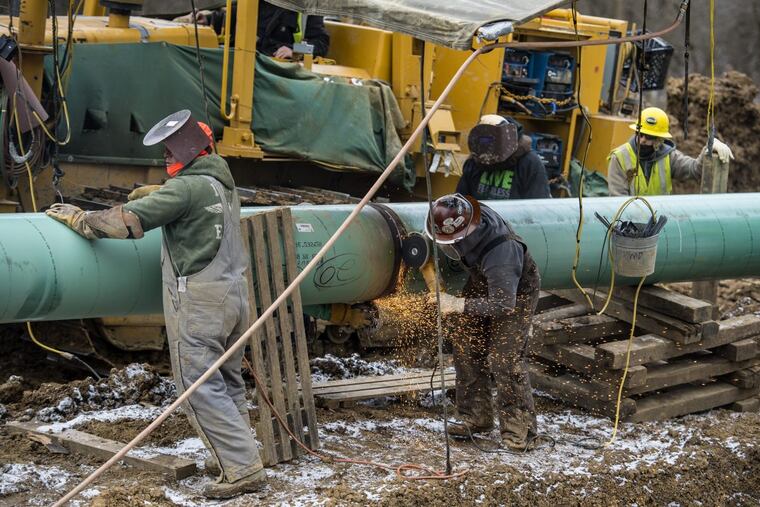Gov. Wolf should stop cozying up to Sunoco on Pa. pipeline project | Opinion
Communities near the pipeline have dealt with dozens of drilling spills, contamination of several private water wells, the puncturing of an aquifer in Chester County, and massive sinkholes forming just steps from their doors.

Sunoco's Mariner East 2 pipeline has been a slow-motion disaster for communities across Pennsylvania, leaving many residents asking the same question: Where is Gov. Wolf? The answer, sadly, is simple: He's siding with Sunoco Logistics and Energy Transfer Partners over the residents of the state. But pressure on him to stop the pipeline is building.
This 350-mile project is designed to carry highly volatile liquids from the fracking fields of Ohio and western Pennsylvania to the Marcus Hook facility, where they will be shipped across the Atlantic Ocean to European petrochemical plants to make plastic. The pipeline offers little to no value to Pennsylvanians, is a disaster for the planet, and puts communities at unacceptable levels of risk. More than 40 schools are within the immediate blast zone of this pipeline, and Sunoco/ETP has a terrible safety record.
Construction has been a catastrophe. Communities near the pipeline have dealt with dozens of drilling spills, contamination of several private water wells, the puncturing of an aquifer in Chester County, and massive sinkholes forming just steps from their doors. And as each crisis has unfolded, these people – like so many others harmed by fracking and pipelines across the state – have been let down by the Wolf administration.
Wolf's Department of Environmental Protection granted Sunoco its permits despite obvious deficiencies, and was slow to take action to rein in the project as problems mounted. When the DEP finally stepped in, the agency flagged Sunoco for "egregious and willful" violation of state law. However, just weeks later, Wolf settled with Sunoco, announcing – on the morning the Super Bowl parade marched through the streets of Philadelphia – that the company could resume construction.
At this point, Pennsylvanians do not know where to turn. They have filed lawsuits, only to be rebuffed when the courts denied townships the right to enforce local safety ordinances that would keep the pipeline from homes, schools, businesses, and libraries. They asked state agencies and the company about the level of danger they were facing, only to find that there is no publicly available risk assessment for this pipeline. Residents have responded by launching a community-funded risk assessment to shed light on the dangers they face.
Residents understand the threats facing their communities. Pipelines inevitably leak – Sunoco's record does not inspire confidence – and the volatile materials carried by the Mariner East 2 would be especially dangerous. A similar pipeline in West Virginia had an explosion just 13 months after it was built, creating a terrifying fireball that caused damage 2,000 feet away. Luckily, nobody was killed or injured in the sparsely populated area, but a similar leak on the Mariner East 2 would spell catastrophe.
While Wolf fails to offer of much of a response, the pressure on the governor is building. At a recent Senate hearing, Republicans and Democrats alike slammed his administration's performance. And on the same day Wolf unveiled an ethics reform plan, we learned that a key aide, Deputy Chief of Staff Yesenia Bane, is under an ethics investigation linked to her role in the pipeline approval process. Bane's husband is a longtime lobbyist for various fossil-fuel interests, raising serious questions about her role in shepherding along the Mariner East 2 project.
What Mariner East 2 represents is very clear: a massive, dangerous pipeline through the heart of the state that will increase drilling and fracking, and present a daily threat to communities affected – all for the enrichment of Sunoco and petrochemical companies that will use these materials to make plastics in Europe. It's time for Wolf to stand for the health and well-being of residents of Pennsylvania, and say no to Sunoco's dangerous pipeline.
Emily Wurth is the co-director of the organizing department at Food and Water Watch, a national advocacy organization. She grew up in Bethlehem, Pa. ewurth@fwwatch.org